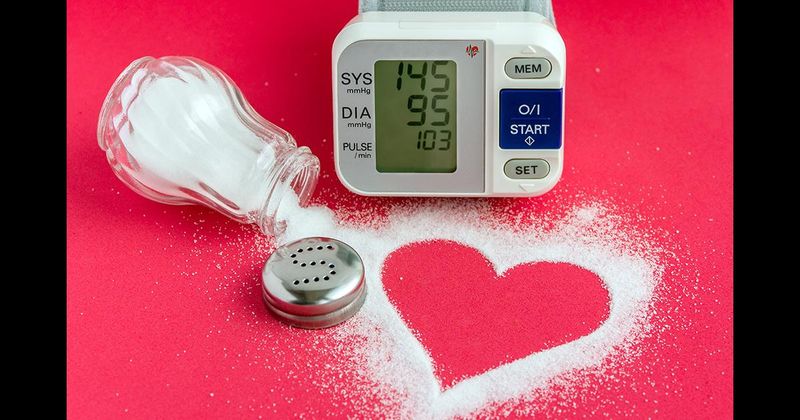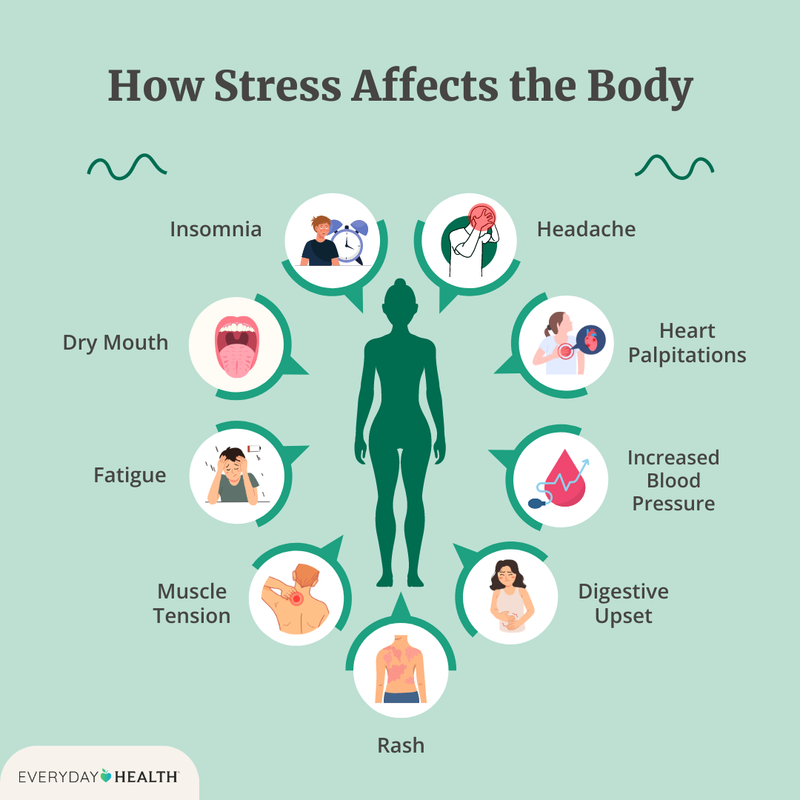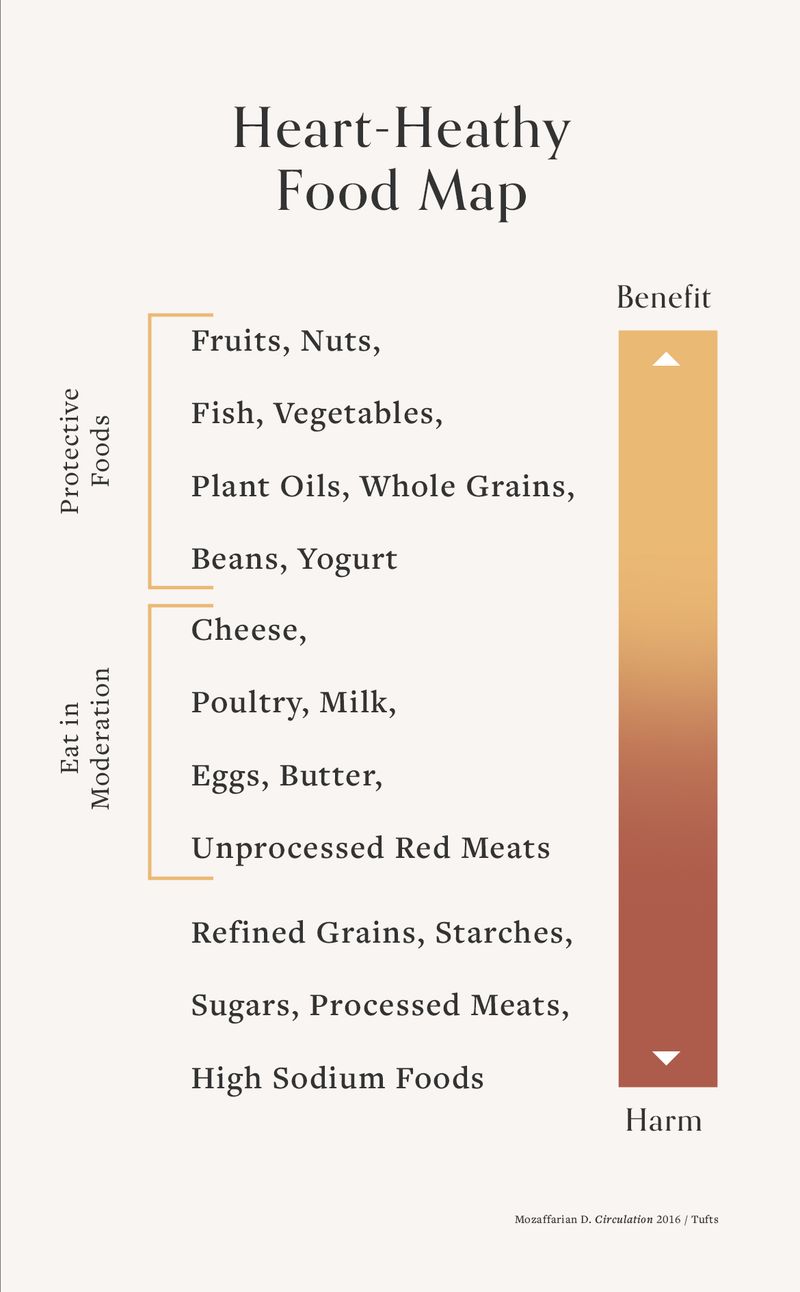Maintaining a healthy heart is crucial for overall well-being, yet certain everyday habits can silently undermine heart health. This article explores ten common practices that, if avoided, can significantly enhance cardiovascular wellness. From dietary choices to lifestyle patterns, recognizing and altering these habits can lead to a healthier heart and a longer life. By understanding these key areas, individuals can take proactive steps towards improving their heart health and, consequently, their quality of life.
1. Overeating Salt

Salt is a silent contributor to high blood pressure. It lurks in many processed foods, often without us realizing. High blood pressure strains the heart, increasing the risk of heart disease. Start by reading food labels. Many are surprised at the sodium content in everyday items.
Reducing salt intake can be a game-changer for heart health. Opt for fresh ingredients and use herbs for flavoring. Experimenting with spices not only enhances taste but also benefits the heart.
A staggering statistic: the recommended daily salt intake is just 5 grams—much less than most consume.
2. Sedentary Lifestyle

Sitting for prolonged periods is as harmful as smoking. A sedentary lifestyle slows metabolism and affects heart health. Even small changes can make a difference. Try standing desks or short walks during breaks.
Physical activity doesn’t mean hours at the gym. Simple activities like gardening or cycling are beneficial. Engage in activities that bring joy and movement.
Regular movement helps maintain a healthy weight, reducing heart disease risk. Remember: consistency in movement is key. Daily habits shape our heart’s future.
3. Smoking

Smoking is a leading cause of preventable heart disease. The chemicals in cigarettes damage blood vessels and heart tissue. Quitting smoking has immediate benefits on heart health.
For those struggling to quit, support groups or nicotine replacements can help. Every cigarette not smoked is a victory for the heart.
Did you know? Within 20 minutes of quitting smoking, heart rate and blood pressure drop. The heart begins to heal almost instantly, showing the body’s incredible resilience.
4. Excessive Alcohol

Alcohol in moderation might not harm, but excess poses risks. It can lead to high blood pressure and heart failure. Monitoring intake is crucial.
For many, social settings trigger overconsumption. Being mindful of cues and opting for non-alcoholic options can help. Setting personal limits before events is also wise.
Fun fact: Red wine, in moderation, contains antioxidants beneficial for the heart. Yet, balance is essential to reap benefits without harm.
5. Ignoring Stress

Chronic stress is detrimental to heart health. It elevates blood pressure and triggers unhealthy coping mechanisms. Identifying stressors is the first step.
Practices like yoga, meditation, or even journaling can offer relief. These activities promote relaxation and improve heart function.
Riddle me this: Why is stress like a thief? It steals our peace and damages our heart. Prioritizing mental well-being is crucial for a healthy heart.
6. Poor Sleep Habits

Sleep is the body’s repair time. Poor sleep affects heart rhythms and blood pressure. Establishing a sleep routine can be transformative.
Avoid screens before bedtime. A dark, cool room aids restful sleep. Consistent sleep patterns improve heart health significantly.
Here’s a surprising fact: Adults need 7-9 hours of sleep for optimal heart function. Yet, many fall short. Prioritizing sleep is investing in heart health.
7. Unhealthy Eating Patterns

Fast food tempts with convenience but harms the heart. High in fats and sugars, it leads to weight gain and heart disease. Incorporating whole foods is vital.
Meal prepping can help resist unhealthy choices. Cooking at home encourages healthier eating patterns and better heart health.
Did you know? Even small dietary changes, like adding greens, can impact heart health positively. Being mindful of food choices fosters a healthier lifestyle.
8. Neglecting Regular Check-Ups

Regular health check-ups detect heart issues early. Many avoid them, fearing bad news. Yet, early intervention can save lives.
Doctor visits aren’t just for the sick. They’re preventive. Discussing family history and lifestyle habits with a doctor is essential.
Here’s a thought: Why wait for symptoms when prevention is possible? Regular check-ups ensure the heart stays in optimal condition.
9. Skipping Heart-Healthy Foods

Foods like fish, nuts, and whole grains support heart health. Many overlook these, opting for processed alternatives. Introducing heart-friendly foods can be simple.
Snacking on nuts or adding fish to meals can enhance heart function. Small changes lead to big health benefits.
Remember: The heart thrives on nutritious fuel. By choosing heart-healthy foods, longevity and vitality are within reach.
10. Overlooking Hydration

Water is essential for heart function. Dehydration can lead to thicker blood and increased heart strain. Keeping hydrated is a simple yet effective heart health strategy.
Carrying a water bottle ensures regular intake. Infusing water with fruits can make hydration enjoyable.
Did you know? The heart pumps around 2,000 gallons of blood daily. Proper hydration supports this vital task, ensuring the heart functions seamlessly. Let’s not overlook the power of water.
Hi all, I am Sidney, an accountant, a hobbyist photographer, and a mother to two sweet girls who are my motivation. I love sharing the tips and tricks I gained all these years I’ve been a mother. I hope it will help you!

